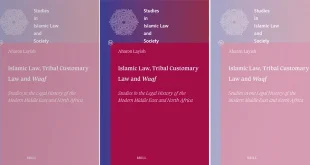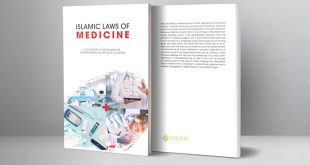The book “The Islamic Scholarly Tradition: Studies in History, Law, and Thought in Honor of Professor Michael Allan Cook “contains highly original articles on Islamic history, law, and thought, each either proposing new hypotheses or readjusting existing ones...
Read More »Distribution of Zakāt al-Fiṭrah according to Ayatollah Sistani’s Fatwa
This type of Zakat should be set aside on the eve of Eid al-Fitr and be paid on the day itself, which marks the first day of the month of Shawwal. It may also be paid earlier to a delegated person/organization, who will take the appropriate steps to distribute it during the....
Read More »Conditions of Enjoining what Is Good and Forbidding What Is Evil
Enjoining what is good and forbidding what is evil has conditions among which that there should be a reasonable possibility that they might accept. Non Muslims need first to believe in Allah and His messenger Muhammad (SAWA) before we talk to them about performing Prayers and...
Read More »Islamic Law, Tribal Customary Law and Waqf
In this collected volume, Aharon Layish demonstrates that legal documents are an essential source for legal and social history....
Read More »Birth Control from Sunni Scholars’ Point of Views
Birth Control and family planning from the Sunni Scholars’ Point of Views.
Read More »Giving Zakat to Afflicted Palestinians Permissible: Al-Azhar
The Fatwa Centre of Al-Azhar, the world’s leading Sunni Islamic institution, issued a statement on Sunday that it is permissible for Muslims to give Zakat (charitable alms) to assist Palestinians suffering the effects of Israeli attacks. The Fatwa Centre also indicated that the givers, in this case, receive two rewards: …
Read More »Slaughtered Animal Is Halal if its Feed Is Halal
In accordance with strict Islamic law and guidelines, a slaughtered animal is considered halal when its feed is also considered halal.
Read More »Brief History of Shia Jurisprudence and Jurisprudents
Jurisprudence has a history of eleven hundred years, meaning that for eleven centuries, without a break
Read More »The Role of Reason and Syllogism in Ijtihad
Some schools of fiqh which supported qiyas, especially the Hanafi school, believed in the role of reason in ijtihad....
Read More »Islamic Laws of Medicine by Ayatollah Sistani
this book is an example of the comprehensive and robust knowledge of the religious seminaries, which provide splendid services to those who want to faithfully apply Islamic rules to every aspect of their lives....
Read More » Ijtihad Network Being Wise and Faithful Muslim in the Contemporary World
Ijtihad Network Being Wise and Faithful Muslim in the Contemporary World









